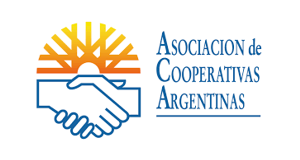Gene editing for improvement in plant and animal species
 Argentina
Argentina
 Chile
Chile
 Colombia
Colombia
 Ecuador
Ecuador
 Paraguay
Paraguay
 Uruguay
Uruguay
 Brazil
Brazil
Executive Summary
Crop and animal breeding is one of the constant challenges faced by the agricultural sector when trying to achieve increases in product yield and quality. The FAO proposes that, in order to meet nutritional demand during the next 32 years, the agricultural sector must produce between 50-70% more food, forage and biofuels than a decade ago. CRISPR-based gene editing (GE) is one of the most promising new biotechnologies for achieving this goal. GE is strongly based on knowledge of crop and animal gene functioning, and can be useful for conventional selection for breeds or varieties with desirable or novel traits in a short period of time. The enormous potential of this technique can be seen through proof of concept in the cultivation of important crops such as corn, cotton, rice, potato, soybean, and in cattle, sheep and pig breeding. The objective of this project is to consolidate regional GE research and innovation capacities for the improvement of species of agricultural interest, as a contribution to the technological sovereignty, value-added production, and the productive, economic and social development of the region.
The technological solution
- Potato varieties with improved health and nutritional and industrial quality.
- Soybean varieties suitable for monogastric consumption (pigs, poultry, fish).
- Genetic lines of animals with modified characteristics to generate products and / or by-products of interest for livestock production.
Results
- Improve plant health, nutritional value and industrial quality of new potato varieties.
- Increase differentiated quality of soybean for monogastric consumption.
- Produce animals (cattle and sheep) with new characteristics of interest for livestock production.
- Build a gene editing platform (GEP) through the consolidation of regional R&D capacities in species of agricultural interest.
Beneficiaries
Research groups and public and private genetic breeding programs in the region that will see capacities increased.
Sustainable Development Goals






Project news
Participating Organizations
Executor
- Fundación ArgenINTA (ARGENINTA) - Argentina
Co-executor
- Instituto Nacional de Tecnología Agropecuaria (INTA) - Argentina
- Instituto Nacional de Investigación Agropecuaria (INIA) - Uruguay
- Instituto de Investigaciones Agropecuarias (INIA) - Chile
- Instituto Paraguayo de Tecnología Agraria (IPTA) - Paraguay
- Corporación Colombiana de Investigación Agropecuaria (AGROSAVIA) - Colombia
- Instituto Nacional de Investigaciones Agropecuarias (INIAP) - Ecuador
Associated
- Empresa Brasileña de Investigación Agropecuaria (EMBRAPA) - Brasil
- UdelaR - Uruguay
- Asociados Don Mario SA (Asociados Don Mario SA ) - Argentina
- Universidad de Buenos Aires (UBA) - Argentina
- Programa Cooperativo para el Desarrollo Tecnológico Agroalimentario y Agroindustrial del Cono Sur (PROCISUR) - Uruguay
- Asociación de Cooperativas Argentinas (ACA) - Argentina
- Consorcio Papa - Chile








